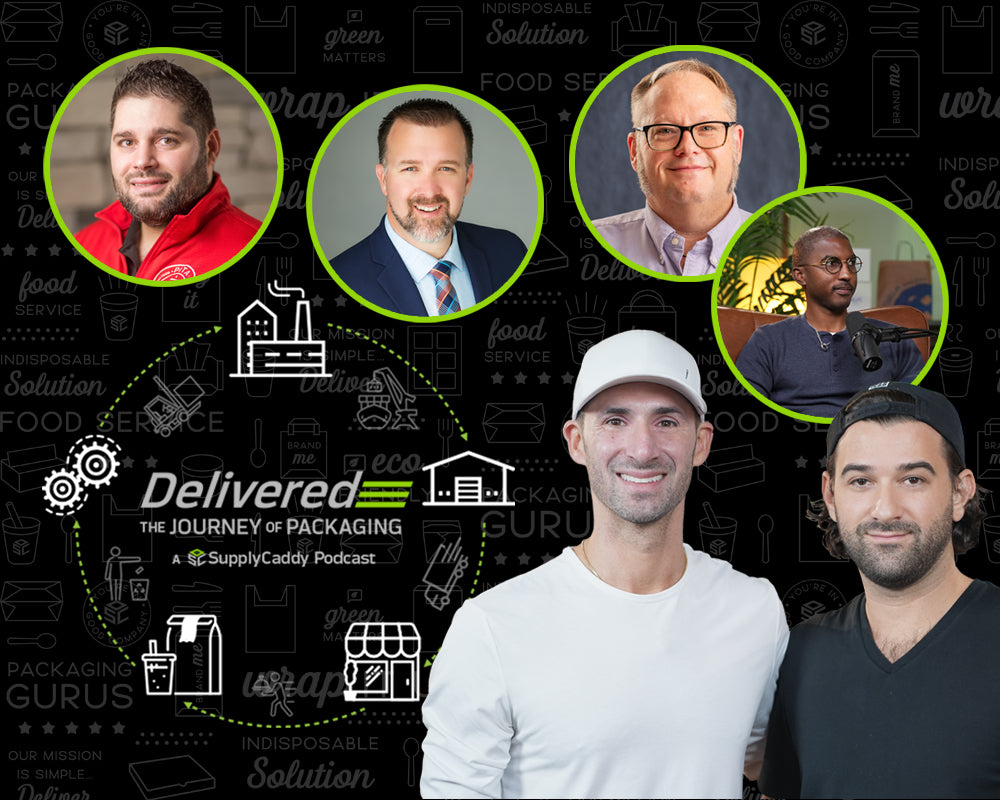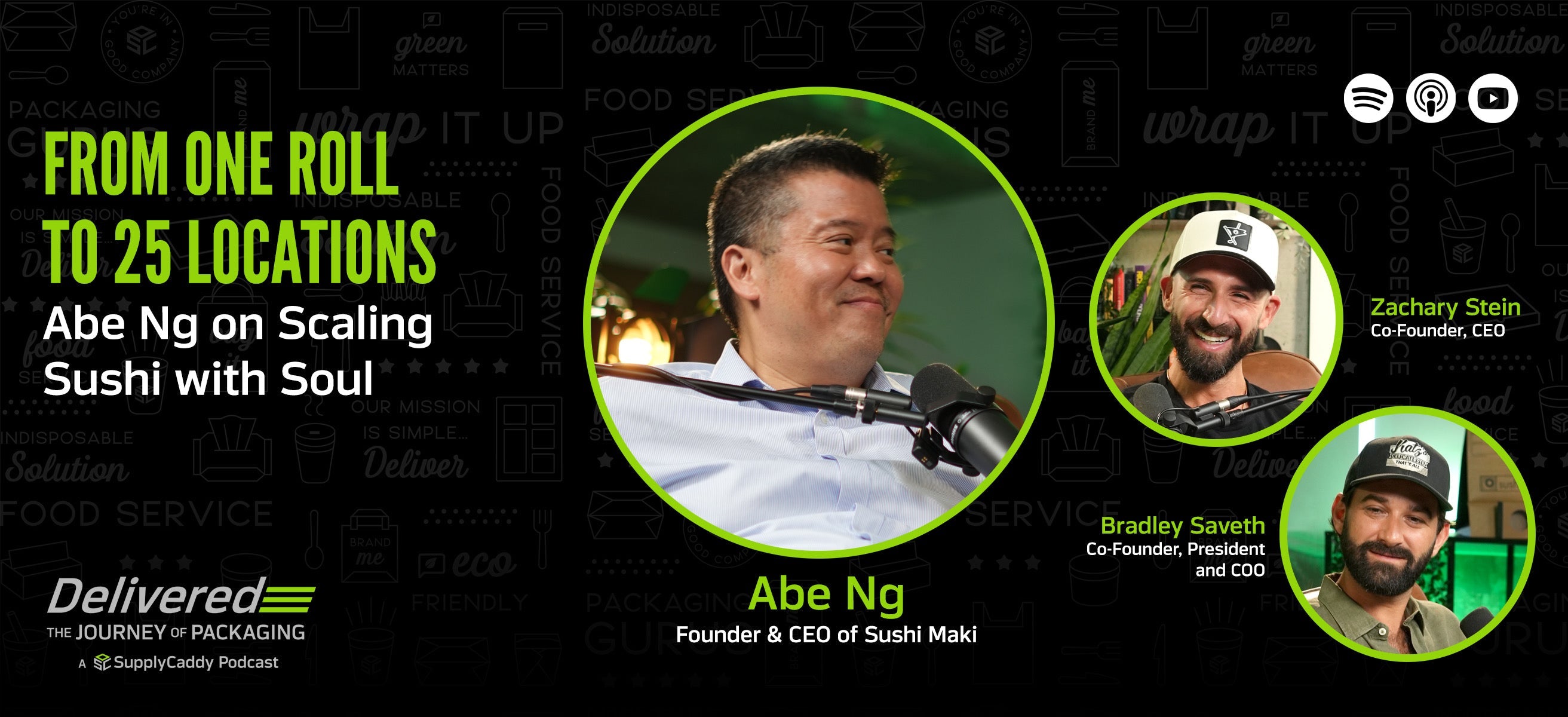When Sushi Maki opened its first doors in 2000, it was more than just a restaurant. It was a promise. A promise to bring authentic sushi with a warm, approachable style to neighborhoods across Miami. Fast-forward to today, Sushi Maki operates in more than 25 locations, including partnerships with Whole Foods, universities, and airports. Yet, despite its rapid growth, it still feels like the neighborhood sushi spot you want to return to again and again.
In a restaurant industry where scaling often comes at the cost of community connection, Abe has built Sushi Maki in a different way. He has grown the brand with intention, blending tradition with innovation and weaving community into every decision. If you’ve ever wondered how to expand your business without losing your soul, this story is worth paying attention to.
5 Ways Abe Ng Grew Sushi Maki Into A Beloved Brand While Keeping Its Neighborhood Feel
-
Staying Rooted in Community Values
From the very beginning, Abe didn’t want Sushi Maki to be just another sushi restaurant. He wanted it to reflect the heartbeat of Miami. The first shop opened in South Miami in 2000, a city buzzing with cultural energy and diversity. That setting shaped Sushi Maki’s identity.
Abe embraced the idea that food isn’t just about feeding people. It’s about connecting them. Each restaurant location was designed to feel approachable, inviting, and part of the local fabric. Unlike chains that feel copy-pasted, Sushi Maki intentionally reflects its neighborhood. The restaurants often partner with schools, community programs, and cultural events, reinforcing that they aren’t outsiders; they’re locals, too.
For you as a business leader, the lesson is clear. Growth doesn’t have to mean detachment. Rooting your brand in local values makes customers feel like you’re not just in their neighborhood, you’re part of it.
-
Balancing Growth With Quality
It’s easy for restaurant chains to lose quality once they begin expansion. Corners get cut, and the original experience vanishes. Abe wouldn’t allow that. As Sushi Maki grew to over 25 locations, quality stayed non-negotiable.
The sushi experience depends on freshness. If that’s compromised, the trust is broken. Abe built systems to ensure sourcing standards and preparation methods stayed consistent. Whether you’re grabbing sushi at the original South Miami location, in an airport terminal, or inside a Whole Foods, the flavors and quality remain the same.
Customers don’t want to sacrifice authenticity for convenience. Sushi Maki built trust by proving that size and quality can coexist. If you’re expanding your own business, remember this: customers will forgive slower growth, but they won’t forgive lower standards.
-
Strategic Partnerships With a Local Touch
One of Sushi Maki’s smartest growth moves was its partnerships. But unlike many brands that scale through generic deals, Abe chose partners that aligned with Sushi Maki’s values and audience.
Whole Foods Market was a natural fit. Customers shopping there already cared about freshness, health, and sustainability, the same values Sushi Maki was built on. By opening Sushi Maki counters inside Whole Foods, the brand reached new audiences while staying true to its DNA.
Universities and airports became another growth channel. Sushi Maki was placed in high-traffic locations where people wanted quick, fresh, and recognizable food. But the partnerships weren’t just transactional. Sushi Maki maintained the same service style and hospitality that made it successful in neighborhoods.
This strategy teaches you that partnerships should enhance, not dilute, your brand. By meeting people where they are, Sushi Maki grew without losing its approachable, neighborhood feel.
-
Innovation That Honors Tradition
Sushi is steeped in centuries of tradition. At the same time, dining trends evolve rapidly, particularly in a diverse and fast-paced city like Miami. Abe understood that innovation was essential, but it couldn’t replace tradition; it had to complement it.
Sushi Maki leaned into sustainability, sourcing fish responsibly and embracing eco-friendly packaging long before it became mainstream. The brand also adapted to changing dining habits. When takeout demand exploded, Sushi Maki refined packaging to keep rolls fresh and visually appealing even outside the restaurant.
At the same time, Abe insisted on honoring sushi-making traditions. Rolls are hand-prepared, chefs are trained with precision, and presentation remains a central focus. Innovation didn’t erase tradition; it amplified it. For you, this balance is key. Customers want to see that you’re keeping up with the times, but they also want to feel the authenticity of your craft. Innovation is powerful when it respects where you started.
-
Customer-Centered Culture
Abe often says Sushi Maki isn’t just in the sushi business, it’s in the hospitality business. That mindset shaped the company’s culture from day one. Employees aren’t trained just to deliver food. They’re trained to create moments of connection. Whether it’s remembering a regular customer’s favorite roll or offering a friendly smile to someone grabbing lunch in a rush, those details matter.
Even in high-volume settings like airports or college campuses, Sushi Maki doesn’t treat customers as anonymous. The goal is to make the experience feel just as personal as the first neighborhood shop. For your business, this is a reminder that scaling doesn’t mean becoming faceless. Customer relationships are the glue that keeps a brand loved, not just known.
From Neighborhood Shop to 25+ Locations: Abe Ng Talks Sushi Maki on Delivered
Today, Sushi Maki is more than just a restaurant; it’s a Miami institution. Abe Ng has spent the last 25 years demonstrating that growth and authenticity can coexist.
In a recent episode of Delivered, Abe shared insights on leadership, brand partnerships, and staying true to community values. He spoke about his family roots and how they influenced his approach to hospitality and management. Coming from a restaurant family, Abe understood the importance of blending tradition with forward-thinking strategies.
He highlighted why partnerships are more valuable than ever in the foodservice industry. As consumer expectations rise, aligning with the right partners helps extend the brand's reach while keeping its mission intact. He also stressed the importance of scaling carefully. Expanding into airports and universities wasn’t about being everywhere; it was about being in the right places where the brand could still feel personal.
For you, whether you’re building a restaurant, retail brand, or service business, Abe’s story offers a roadmap. Growth is not just about size. It’s about purpose, consistency, and connection.
Your Brand Deserves Better Packaging — Contact SupplyCaddy Now
We’ve seen how Sushi Maki elevated its brand with innovative packaging and a customer-first mindset. If you’re running a foodservice business, you deserve the same. That’s where SupplyCaddy comes in. We’ve partnered with iconic brands like Cinnabon, Burger King, Delta, Dave’s Hot Chicken, Popeyes, Bodega, and Tijuana Flats. These companies trust us because we deliver packaging that protects quality, communicates brand identity, and improves customer experience.
SupplyCaddy is a global leader in high-quality, cost-effective packaging and disposables for the foodservice industry. With headquarters in Miami and manufacturing facilities across North America and Europe, we provide both custom and generic solutions tailored to your business needs. Your packaging is your first impression; make it count. Contact us today at hello@supplycaddy.com.


